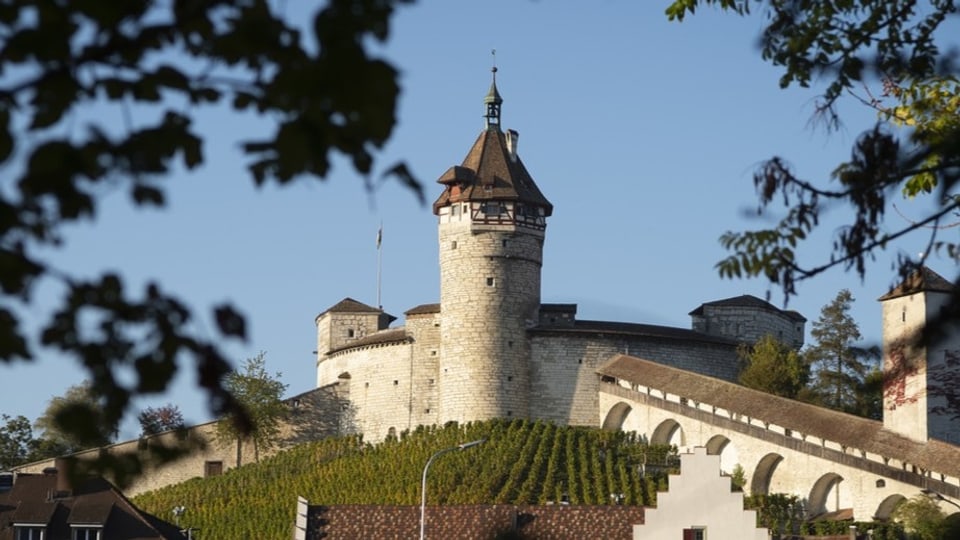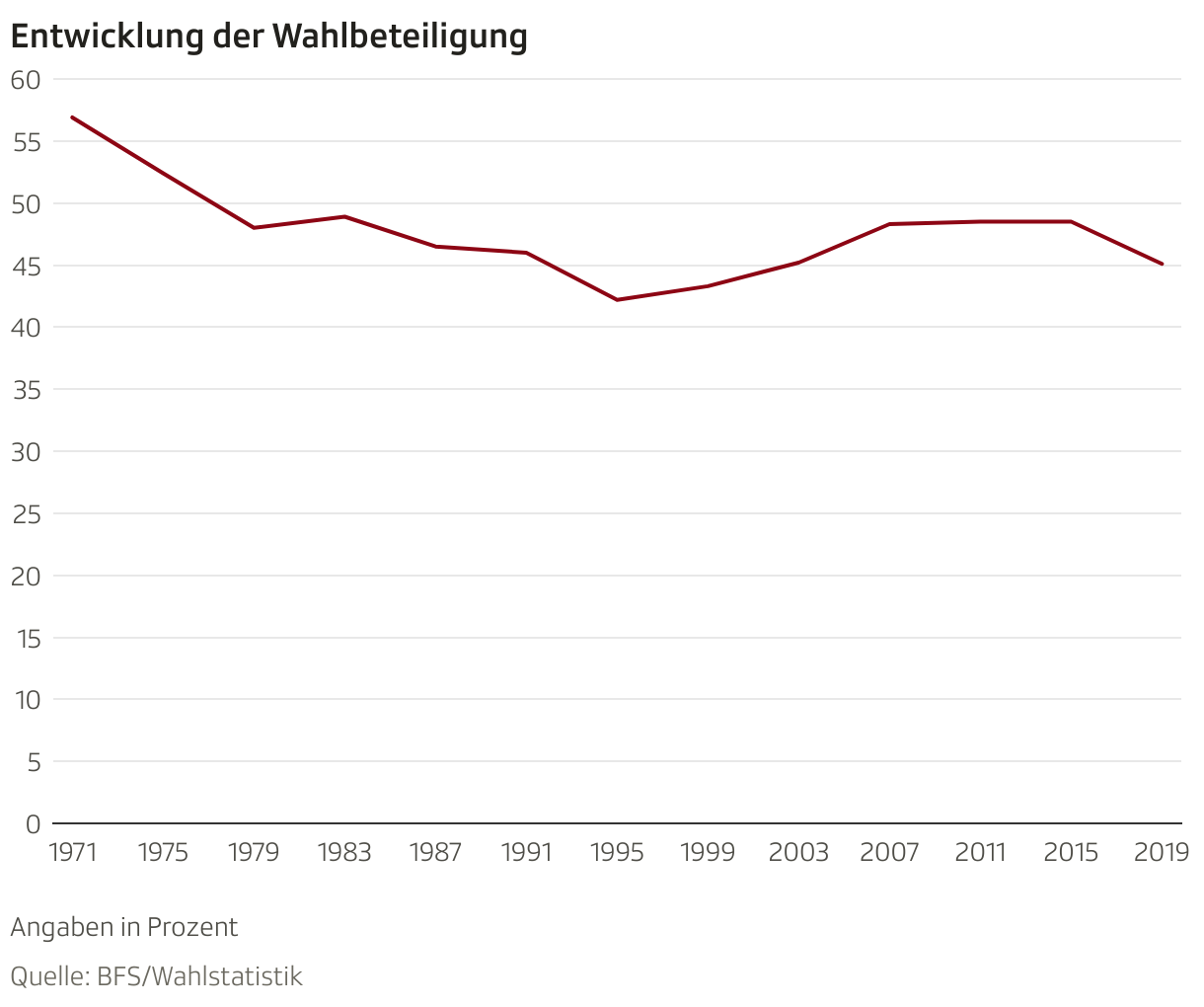Contents
Schaffhausen is the only canton in Switzerland that requires voting. Despite the advantages, the obligation is controversial.
Chocolate, the Alps and direct democracy: Swiss people are generally proud of these three things. At least when it comes to direct democracy, pride is not evident at the ballot box: since 1979, more than 49 percent have never taken part in national elections in Switzerland. A recipe for the widespread “urn fatigue” would of course be compulsory voting – but only the canton of Schaffhausen has this.
The canton of Schaffhausen essentially forces its citizens to go to the polls, otherwise they will be fined. This is only six francs per missed vote.
However, with four votes per year, the amount adds up over the years. Calculations by SRF show: If every vote is consistently missed between the ages of 18 and 65 who are subject to fines, the cost is over 1,000 francs.

Legend:
Just as the Munot watches over the city, the authorities monitor the population’s voting behavior
Keystone/Melanie Duchene
Voting participation is massively higher
More voters go to the polls in Schaffhausen than in the rest of Switzerland. In the last elections in 2019 it was 60 percent. For comparison: the Swiss average was only 45.1 percent.
Our society is very committed.
But what do the people of Schaffhausen think of their compulsory voting? Raphael Rohner, head of education for the city of Schaffhausen, is convinced that compulsory voting is not a decisive factor for the high level of participation. “We have a society that has been very committed for decades, developing attitudes and introducing them into the political process.”
People check something.
Others disagree: People would then vote on something to avoid the fine. “It should be voluntary,” said a woman in a street survey. She would therefore abolish compulsory voting. A man, on the other hand – who has already had to pay a fine himself – would increase it. “Then the voter turnout would increase even further,” he is convinced. So the population is divided.
In fact, the proportion of invalid votes and blank votes in the Schaffhausen votes is relatively high – an indication of people who are disinterested in voting, says political scientist Markus Freitag. They didn’t want to collect any fines, but they didn’t think much about the proposal or the election. “The quality of decisions is reduced.” Instead of forcing people to vote, he advocates teaching skills through education. He criticizes that this doesn’t happen enough in Switzerland. “It’s a patchwork quilt.”
Intervene when necessary
A visit to a KV class in Schaffhausen shows that the students between the ages of 17 and 19 are fundamentally interested in politics and are currently taking civics classes. But Swiss politics is not incredibly exciting. On a scale of 1 to 10, they give it a 3 or a 4.
Some people still feel unsafe when filling out voting and election slips. “I spoke to my parents and then chose what they chose.” This of course distorts the result, says one student self-critically. However, the majority are calm about the fact that only half of the population goes to vote. Many are probably happy with it as it is.
If only half of it works, it can’t fundamentally go wrong.
A stance that political scientist Markus Freitag also takes. “I wouldn’t be worried if there were fewer.” It is an expression of satisfaction from those who stayed at home. Anyone who wants to intervene does so by voting. With or without compulsory voting.
